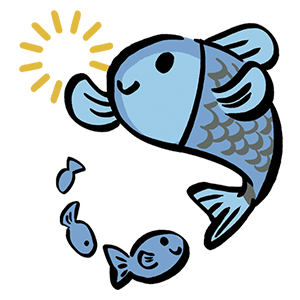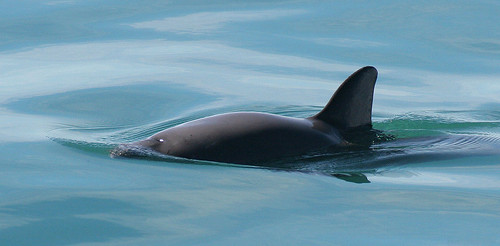美國政府與3個環團達成歷史性的和解,同意採納新規範,確保進口到美國的海鮮符合保護鯨豚的高標準。
國際貿易法院還裁決,美國政府必須在2016年8月前決定如何實施新規範,並終結海鮮非法進口。
漁網纏身、絞死 每年65萬鯨豚死於商業捕撈
有超過兩百萬人支持的原告團體──生物多樣性中心、海龜島復育網和自然資源保護委員會等非營利組織──12日在紐約國際貿易法院獲得被告的和解協議。依美國憲法第三條成立的國際貿易法院,管轄全美關務和國際貿易相關的民事訴訟。
「新規範將迫使其他國家遵守美國保育規範,拯救全球成千上萬的鯨豚免死於魚鉤和漁網之下。美國政府終於同意,所有美國消耗的海鮮皆不能是犧牲海豚性命而取得。」生物多樣性中心資深律師和國際計畫主任Sarah Uhlemann說。
每年全球超過650,000隻鯨豚或其他海洋哺乳動物,意外被商業捕撈魚網纏住或致死。鯨豚常被鮪魚網纏住,接著被漁船的絞網車絞碎,或是在網中溺水甚至被拋出船外因傷死亡。
雖然美國努力在自己的水域保護海洋哺乳動物,環團表示,漁具仍然是全球鯨豚的最大威脅。「是時候採取行動保護數千全球鯨豚,以對美國本國漁民的嚴格標準,要求海鮮進口。」自然資源保育委員會 Zak Smith說。
美進口海鮮過半數為野生捕撈 鯨豚盼能獲保育
歷經無數努力,新規範總算將有40年歷史的海洋哺乳動物保護法付諸實踐。海洋哺乳動物保護法規定,進口美國的海鮮必須符合美國的鯨豚保護標準。
「要是我們40年前就有這樣的規定,現在就不用辛苦拯救瀕危的小頭鼠海豚了。幸好,一旦新規範上路,其他物種就不會步上小頭鼠海豚的後塵。」Smith說。
小頭鼠海豚是全世界最小的鯨豚類,因墨西哥加州灣的捕蝦流刺網而瀕臨絕種,目前只剩下不到100隻。
依照新規範,該地區的蝦將被禁止進口美國,因為不符合美國的海洋動物保護標準。這個標準還包括改裝漁具或限制特定地區捕撈,減少魚網對鯨豚造成的危險。
美國每年消費50億磅的海鮮,包括鮪魚、旗魚、蝦和鱈魚。約90%的海鮮是進口的,並有約一半是野生捕撈。
In a landmark settlement with three environmental groups, the U.S. government has agreed to adopt new rules that ensure seafood imported into the United States meets high standards for protecting whales and dolphins.
The plaintiffs: Center for Biological Diversity, Turtle Island Restoration Network and the Natural Resources Defense Council – nonprofit groups representing a total of more than two million people – won Monday’s settlement in the U.S. Court of International Trade in New York.
The Court of International Trade, established under Article III of the U.S. Constitution, has nationwide jurisdiction over civil actions arising out of the customs and international trade laws of the United States.
“The new regulations will force other countries to step up and meet U.S. conservation standards – saving hundreds of thousands of whales and dolphins from dying on hooks and in fishing nets around the world,” said Sarah Uhlemann, senior attorney and international program director of the Center for Biological Diversity. “The U.S. government has finally recognized that all seafood consumed in the United States must be ‘dolphin-safe.’ ”
Each year more than 650,000 whales, dolphins and other marine mammals are caught and killed in fishing gear somewhere in the world. These animals are unintentional “bycatch” of commercial fisheries.
Whales and dolphins become entangled in tuna nets; they are then crushed and killed in the net-pulling winches of the fishing boats. Or they drown in the nets or are tossed overboard to die from their injuries.
Despite U.S. efforts to protect marine mammals in its own waters, fishing gear continues to pose the biggest threat to whale and dolphin conservation worldwide, the groups maintain.
“It’s time to do what it takes to save thousands of whales and dolphins around the world, and hold our fish imports to the same standards that we require of our U.S. fishermen,” said Zak Smith with the Natural Resources Defense Council. “This law will help do that. It provides real, enforceable protections for marine mammals and sets up an even playing field that allows our fishermen to be competitive in the U.S. market.”
The rules implement a 40-year-old provision of the Marine Mammal Protection Act that prohibits the United States from allowing seafood to enter the country unless it meets U.S. whale and dolphin standards.
Under the Court of International Trade settlement, the U.S. government must make a final decision by August 2016 about how to implement this requirement and end unlawful fish imports.
“If we’d had these standards 40 years ago, we wouldn’t be scrambling today to save the imperiled vaquita. Thankfully, if this law is implemented, other species won’t share their fate,” said Smith.
The vaquita, the world’s smallest porpoise, is being driven extinct by shrimp gillnets in Mexico’s Gulf of California. Fewer than 100 vaquita remain.
Under the new regulations, shrimp from this region would be barred from entering the United States as it does not meet the more protective U.S. marine mammal protection standards.
These standards may include modifying gear and closing fishing in some areas to limit the risk of entanglement of whales and dolphins in fishing nets.
Americans consume five billion pounds of seafood per year, including tuna, swordfish, shrimp and cod. About 90 percent of that seafood is imported and about half is wild-caught.
※ 全文及圖片詳見:ENS
 網站捷徑
網站捷徑




